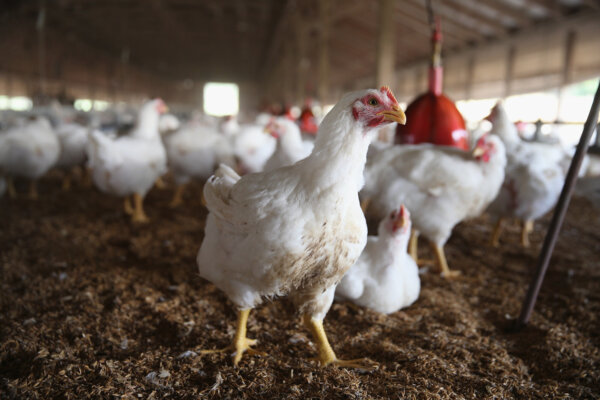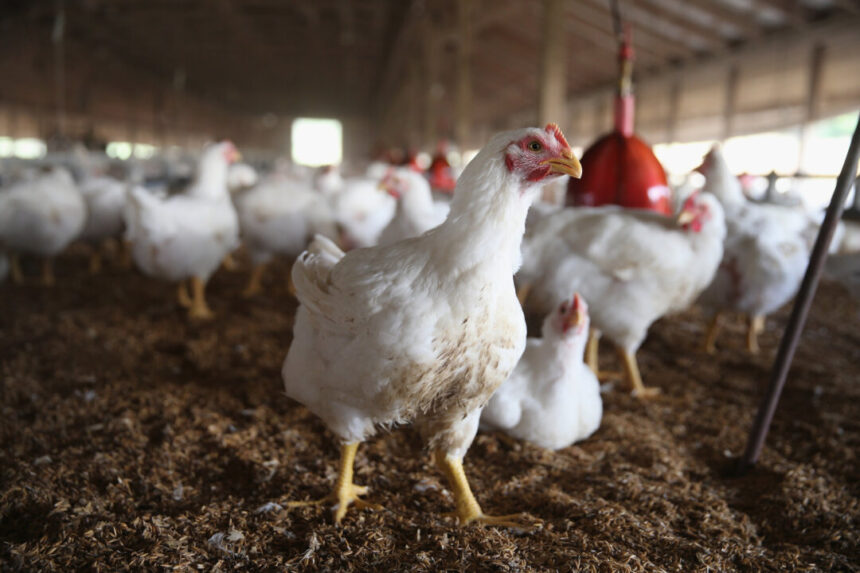
Iowa Gov. Kim Reynolds has issued a disaster proclamation, allowing state and federal agencies to support in tracking and containing the virus.
Over 4 million chickens will be euthanized to prevent the spread of bird flu after the virus was found at a commercial egg-laying facility in Iowa, the state revealed on May 28.
This was the first case of avian influenza identified in a large commercial flock of chickens in Iowa this year.
Don McDowell, the communications director of the agency, informed The Epoch Times via email that the affected flock consists of approximately 4.2 million chickens.
“The recent HPAI detections in birds do not pose an immediate public health threat, and it is still safe to consume poultry products,” stated the governor’s office. “If producers suspect signs of HPAI in their flocks, they should contact their veterinarian immediately.”
The proclamation will be effective until June 27, her office confirmed.
According to the U.S. Department of Agriculture, over 92 million birds have been euthanized nationwide since the outbreak began in 2022.
Recently, the virus was confirmed at an egg farm west of Minneapolis, Minnesota, leading to the euthanization of nearly 1.4 million chickens.
Although HPAI—a viral disease affecting both wild and domestic bird populations—has become relatively common among poultry, the increasing number of cases in lactating dairy cattle and species that come into contact with them or consume their milk has heightened concerns about the disease.
Bird Flu Situation in Humans
The second human case of bird flu this year was recently diagnosed in a Michigan dairy worker.
The farmworker, whose personal details were not disclosed, tested positive on May 22 and experienced mild symptoms, the Michigan Department of Health and Human Services reported. The individual has since recovered.
Even though two human cases of HPAI have been confirmed in Michigan and Texas this year, the CDC believes that the risk to the public is low.
“Persons who have job-related or recreational exposure to infected birds, poultry, dairy cattle, or other infected animals or contaminated materials, including raw cow’s milk, are at increased risk for infection; these persons should take appropriate precautions,” the CDC advised.
The agency recommended that individuals who come into close contact with infected cattle or other animals should wear protective gear, monitor themselves for symptoms such as eye inflammation and fatigue, and seek immediate medical evaluation if they experience symptoms.
It also suggested that people avoid consuming raw or undercooked food from animals with suspected or confirmed cases of bird flu.
The only three human cases of bird flu confirmed in the United States include two dairy workers in Michigan and Texas, as well as a man working to euthanize infected birds at a poultry farm in Montrose County, Colorado. All three individuals who were infected have recovered.
The Associated Press contributed to this report.






